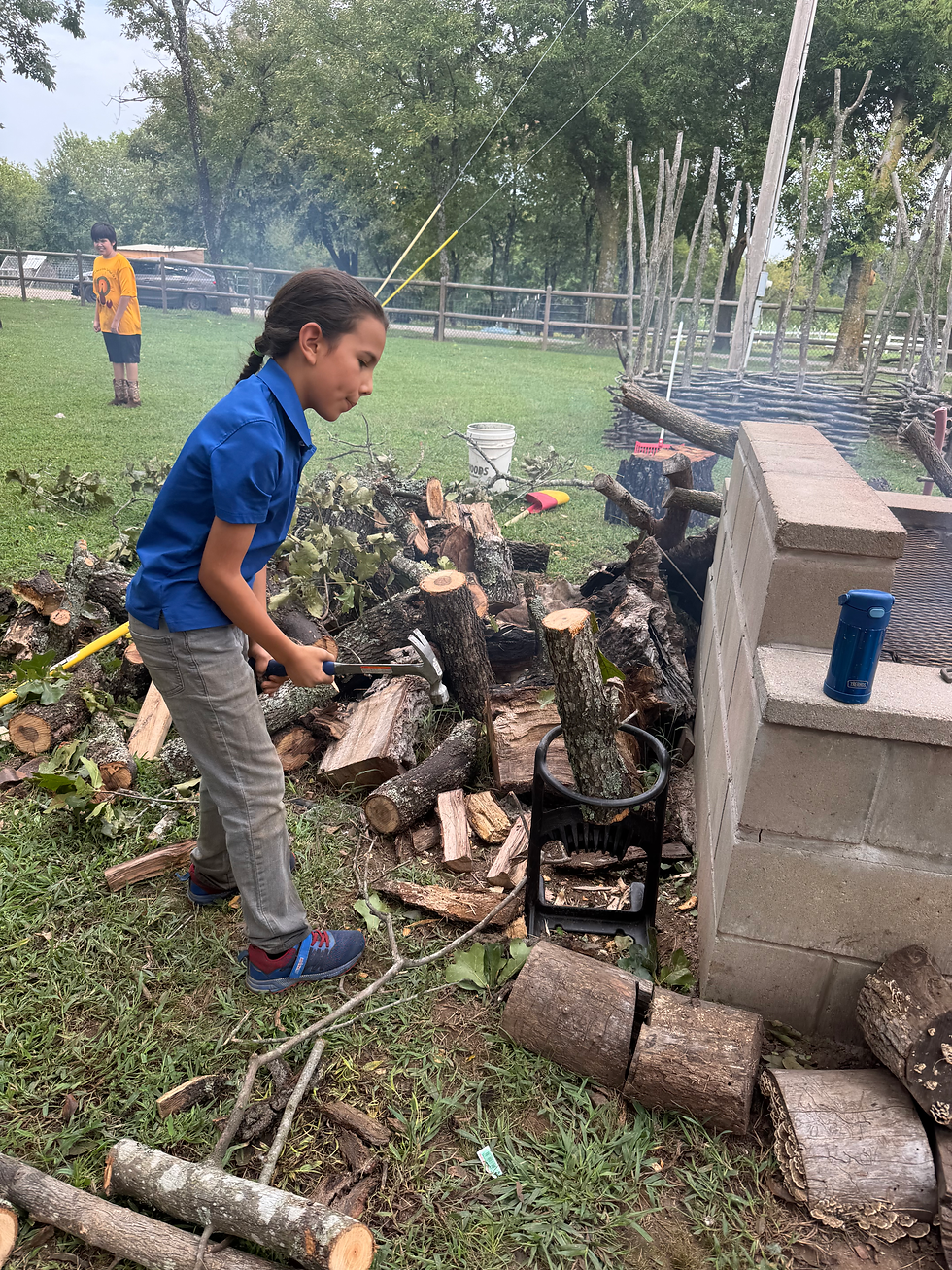
shtahaê Ô’wAdAnA
Yuchi Immersion School
Continuing the Legacy of Yuchi Educational Sovereignty Since Time Immemorial
Our Goals
-
To produce a new generation of Yuchi speakers, with a focus on creating new first-language speakers
-
To provide developmentally appropriate and culturally relevant curriculum and classroom instruction for students through the medium of the Yuchi language
-
To engage family and community in the language and cultural education of their children
-
To create a living language habitat where the Yuchi language and worldview provide a natural learning environment for children.

“shtahaê Ô’wAdAnA” yUdjEhaAlA k’asOgÔTanE
“Our First Language” Yuchi Immersion School
yUdjEha gO’wAdAnA-A h@lA Ôthla, zOyahalA n@wElA Ôt@, TahAê Ôk’âfA. OhahanE Enû yUdjEhalA k’ala wahalA OnOnzOTa jî. abAhû yaTEchE KAlAnÔk’Âgû. ÔzEOtOtO Enû yUdjEhalA shtahaê O’wAdÂ. yUdjEha gO'wAdAnA-A gOyUôndanEchE s@nlA. zOyaha Ânô sô KAÂnô!
yUdjEha gO'wAdAnA k'ak'ûnEchE: the Yuchi Language Project (YLP) is a not-for-profit educational organization that has been working for over 25 years to restore the vitality of the Yuchi language. Among other awards and recognitions, the program earned the Oklahoma Humanities Award for Education in 2013. YLP seeks to create a sustainable language community where the fullness of the Yuchi worldview can thrive for future generations. To better support children and families in fulfilling this vision, YLP established shtahaê Ô'wAdAnA (“Our First Language”) Yuchi Immersion School in 2018. The School partners with committed families to develop new first language speakers to ensure the cultural continuity of the Yuchi people and way of life.
shtahaê Ô’wAdAnA is an expression of Yuchi educational sovereignty and draws upon the legacy of our ancestors who effectively educated their own children since time immemorial using sustainable practices. “Immersion” means that Yuchi is the medium of instruction and the colonial English language is not spoken during classes in order to focus the learning on the Yuchi language and the fullness of the Yuchi worldview. Research demonstrates strong educational and cognitive benefits for students learning Indigenous languages, including improved test scores, learning outcomes, graduation rates, cultural competency, and a unique edge on college applications when compared to monolingual English students.
As an alternative to public school education, the Yuchi Immersion School offers a unique environment where children are nurtured in every domain of becoming a successful Yuchi person. We also meet Oklahoma State Regulations set forth by the U.S. Department of Education regarding instruction hours and curriculum, record keeping and assessment, and health and safety requirements.
Through our funding partners, we are able to make a personalized investment in educating each student without a financial cost to families. However, student families will contribute their time and effort to supporting the school and remain actively involved in their children's learning. We ask that families attend required language classes to help reinforce their children’s speaking at home, as well as occasionally volunteer at the school. Consistent attendance over the long-term, clear communication, and a mutually supportive relationship with families is important to achieving the goals of restoring the Yuchi language and ensuring student success.
Teachers are certified through Bacone College’s Center for Tribal Languages, with some also holding bachelor’s and doctoral degrees from Ivy League Institutions. Program staff have over 50 years of combined experience learning from Elders in the Yuchi language and maintain licensing in First Aide, CPR and Food Handling.
In addition to the opportunity to learn the Yuchi language, shtahaê Ô’wAdAnA offers students many tangible benefits:
• Rigorous individualized learning with exceptional student-teacher ratios for academic success in core subjects
• Curriculum designed to build the students’ Yuchi identity and cultural knowledge based on the Yuchi Circle of Life
• Improved health focus through increased physical activity, nature-based learning, onsite agricultural and seasonal activities
• High quality meals cooked fresh daily with organic ingredients based on a traditional Yuchi diet
• Close-knit, secure environment as an alternative to public schools where rising levels of violence and bullying are safety concerns
• Holistic education helps students to be creative, work together, embody Yuchi values, and contribute to their community as culture bearers and lifelong learners











